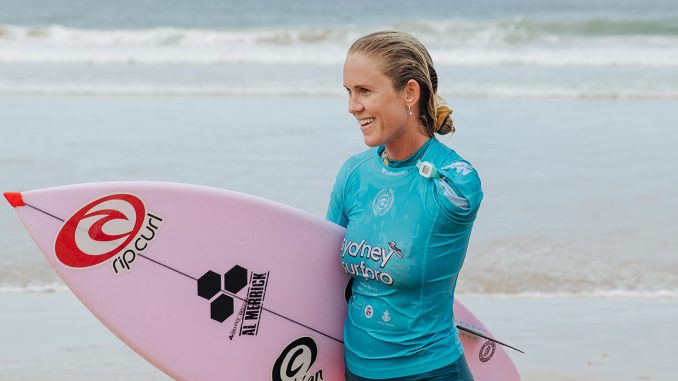
Few female athletes have the ear of America, much less the world, in the way Bethany Hamilton does.
With more than 1 million followers on Twitter, 2 million on Instagram, and two movies telling her story, when Hamilton speaks, people listen, which is something Hamilton appears to have been counting on when sharing a recent post on her Instagram account.
After the World Surf League announced it would allow men to compete in women’s sports if they maintain low levels of testosterone for a year, Hamilton announced she “won’t be competing in or supporting the World Surf League if this rule remains.”
The policy states that a surfer must maintain a “serum testosterone concentration … less than 5 [nanomoles per liter] continuously for a period of the previous 12 months.”
“Am I just a hormone number?” asked Hamilton, who has competed in World Surf League events for 15 years, in the second of two videos she shared on Instagram.
Hamilton said she knows she is not the only female surfer in the league who has concerns about men competing against women, and added, “I don’t blame the other athletes for not wanting to speak up” because she knows they will face criticism for doing so.
Despite receiving pushback and being called a “TERF”—that is, a trans-exclusionary radical feminist—Hamilton said she is committed to have “grace, forgiveness, and love, and honesty, no matter how cruel and harsh the world may be.”
Hamilton earned the right be called the darling of American surfing after returning to the sport following a shark attack in 2003 that left her without a left arm. The 2011 film “Soul Surfer” tells her story, and Hamilton shares personally about her passion for surfing and life with one arm in the 2018 documentary “Bethany Hamilton: Unstoppable.”
While Hamilton is one of the few professional athletes to speak out about the rise of men competing as women, a small group of high school track athletes from Connecticut have been doing just that for years.
Selina Soule is a former Connecticut high school track athlete, and one of four female athletes represented by the Christian legal organization Alliance Defending Freedom in the case Soule v. Connecticut Association of Schools. In December, a three-judge panel of the U.S. Court of Appeals for the 2nd Circuit ruled against Soule and the three other track athletes fighting to protect women’s sports in their state. But earlier this week, the 2nd Circuit announced it will rehear the case
“We’re pleased the 2nd Circuit has decided to rehear this important case, and we urge the court to protect women’s athletic opportunities,” Christiana Kiefer, Alliance Defending Freedom senior counsel, said in a statement.
Eighteen states have enacted laws to protect women’s sports and prevent men from competing against women: Alabama, Arizona, Arkansas, Florida, Iowa, Idaho, Indiana, Kentucky, Louisiana, Mississippi, Montana, Oklahoma, South Carolina, South Dakota, Tennessee, Texas, Utah, and West Virginia.
A number of other states are considering passing similar laws to protect opportunities for women and girls on the track and field, in the ring, or in the pool.
While states like Connecticut consider whether or not they will protect opportunities for women, Hamilton says, her hope is for a woman “to have a bright and promising opportunity in her ambition to be the best of the best woman in her sport.”
On today’s edition of the “Problematic Women” podcast, we discuss Hamilton’s defense of women’s sports and why her voice is so important at this moment in history.
Also on today’s show, we discuss the mental health and wellness of teenage girls after the release of a troubling new study. Plus, a report from Baltimore shows a major drop in math proficiency. We explain the path forward for education across the country. And as always, we’ll be crowning our “Problematic Woman of the Week.”
Listen to the podcast below:
Have an opinion about this article? To sound off, please email letters@DailySignal.com, and we’ll consider publishing your edited remarks in our regular “We Hear You” feature. Remember to include the URL or headline of the article plus your name and town and/or state.

